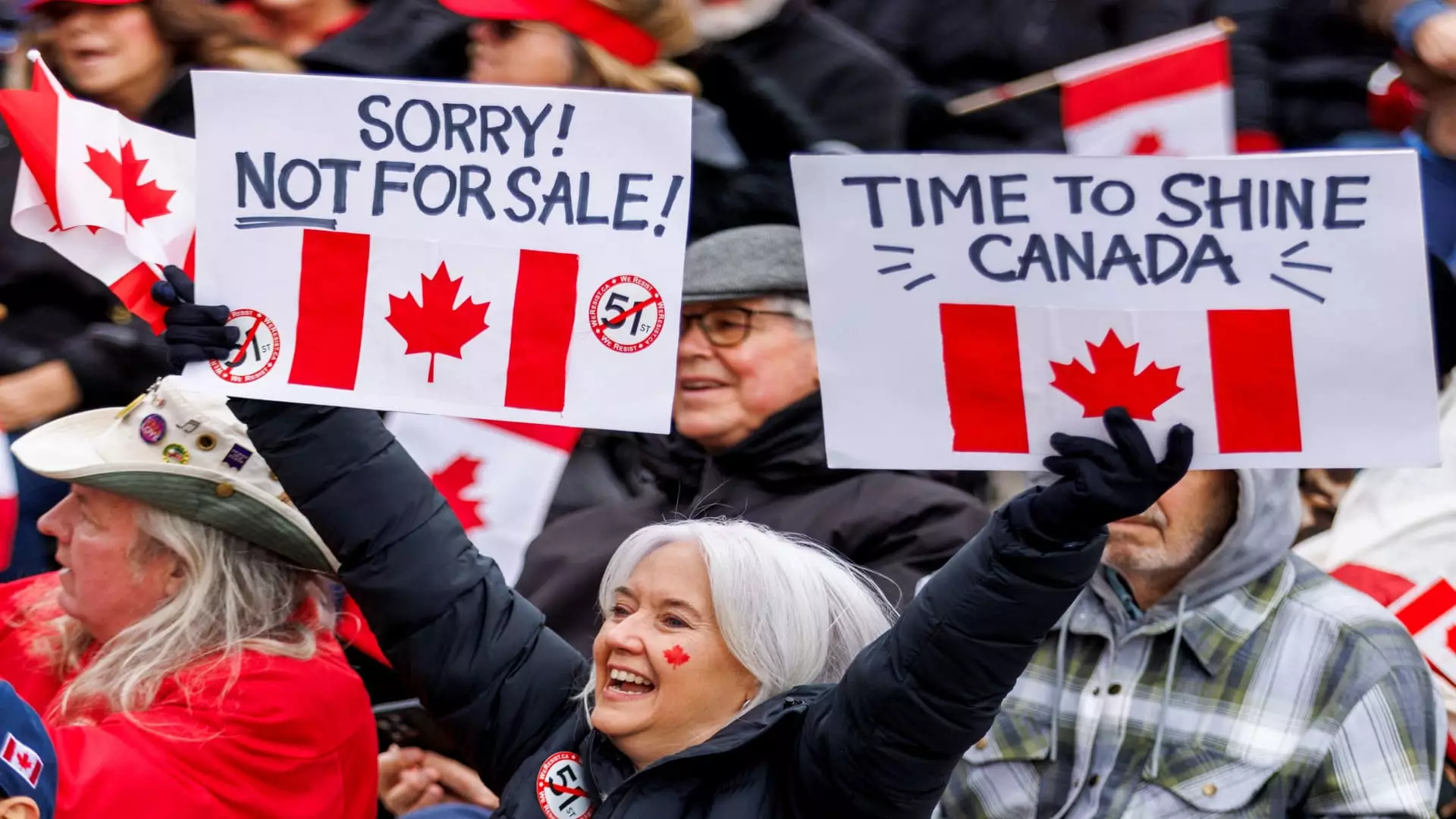In an era marked by mounting geopolitical tensions, consumers are asserting their influence with newfound decisiveness. Across borders, national identity and economic patriotism are fueling resistance against American products. Canadians, traditionally receptive to American goods, are now prioritizing domestic and Canadian-made items with fervor. This shift signifies more than mere trend—it underscores a fundamental reassessment of consumer trust and loyalty in the face of political discord. Retailers like Giancarlo Trimarchi’s Vince’s Market vividly illustrate this phenomenon, as customers demand exclusively Canadian products and express outright disdain for U.S. imports. This behavior reveals that economic boycotts are not just reactions but deliberate acts of cultural and political expression, which could outlast the current tensions.
The Impact of Tariffs and Political Aggression
The Trump administration’s announcement of a 35% tariff on Canadian goods signals an escalation that extends beyond economic calculations; it is a strategic move that risks alienating allies and consumers alike. While intended to protect certain industries, these tariffs are inadvertently triggering retaliatory behaviors, prompting Canadians to reconsider their consumption habits. Experts warn that such measures risk entrenching negative perceptions of U.S. products globally, making recovery difficult once the political hostility subsides. Beyond immediate trade disruptions, this stance cultivates a climate of suspicion and distaste that could redefine cross-border economic relationships for years to come.
The Domination of Consumer Sentiment Over Policy
Surveys underscore a significant shift in Canadian consumer behavior, with 71% planning to buy fewer U.S. goods—particularly in food and alcohol sectors—causing tangible economic repercussions. Canada’s status as a vital U.S. trading partner, especially in agriculture, makes this boycott particularly consequential; with $28.4 billion in annual food exports, alterations in consumer preferences threaten substantial losses. Beyond trade, the ripple effects extend into tourism, where canceled trips and reduced international visitors threaten a $12.5 billion revenue decline for the U.S. economy in 2024. Such figures translate into longer-term economic vulnerabilities, demonstrating that consumer activism can be both a powerful signal and a tangible threat to economic stability.
Global Shadows: Europe’s Response to U.S. Policy
The boycott spirit is not confined to North America. Europeans, driven by frustrations with U.S. foreign policy, are also deprioritizing American brands. A recent European Central Bank survey shows nearly half of Europeans are actively avoiding U.S. products, with Tesla’s European sales plummeting by almost 28%. This demonstrates a broader trend where consumer sentiment—fueled by discontent with U.S. policies—can have profound real-world consequences for American multinationals. Such rejection reflects a complex interplay of political dissatisfaction and economic choice, emphasizing that international markets are increasingly guided by perceptions and ideology rather than mere product quality or price.
The Long-Term Ramifications of Consumer Defiance
Although some analysts speculate that these boycotts and sentiments may subside when political tensions ease, the reality is more complicated. Consumer loyalty, once eroded, is notoriously difficult to restore. The current climate suggests that the U.S. could face sustained challenges in maintaining its market dominance abroad. For American businesses, especially those heavily reliant on international sales, the lesson is clear: geopolitical conflicts and aggressive trade policies can backfire spectacularly, transforming consumer boycotts from temporary protests into enduring economic headwinds. As these behaviors seep into daily purchasing decisions, U.S. companies must grapple with the reality that economic power is increasingly tethered to political perception and national identity.

